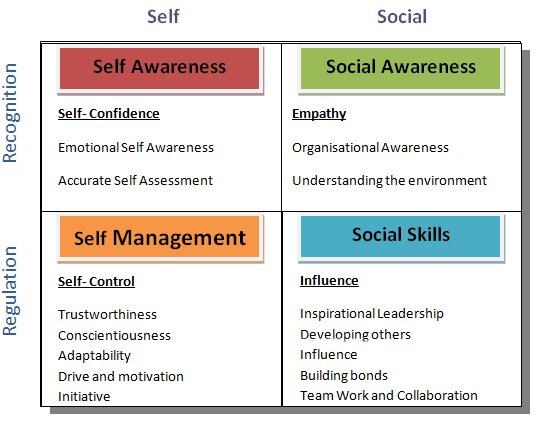Word Of the Week #600: Calm
February 4, 2016 by Susan Clarke · Comments Off on Word Of the Week #600: Calm
Calm – under control.
How much stress do you experience each day? How does it affect you? Are you able to stay calm and in control when a stressful situation arises at work?
This week features excerpts from “How Successful People Stay Calm,” written by Travis Bradberry. He writes, “The ability to manage your emotions and remain calm under pressure has a direct link to your performance. TalentSmart has conducted research with more than a million people, and we’ve found that 90% of top performers are skilled at managing their emotions in times of stress in order to remain calm and in control.
Some startling research summaries explore the havoc stress can wreak on one’s physical and mental health, which found that prolonged stress causes degeneration in the area of the brain responsible for self-control. The tricky thing about stress (and the anxiety that comes with it) is that it’s an absolutely necessary emotion. Our brains are wired such that it’s difficult to take action until we feel at least some level of this emotional state. In fact, performance peaks under the heightened activation that comes with moderate levels of stress. As long as the stress isn’t prolonged, it’s harmless.
Besides increasing your risk of heart disease, depression, and obesity, stress decreases your cognitive performance. Fortunately, though, unless a lion is chasing you, the bulk of your stress is subjective and under your control. Top performers have well-honed coping strategies that they employ under stressful circumstances. This lowers their stress levels regardless of what’s happening in their environment, ensuring that the stress they experience is intermittent and not prolonged.
While I’ve run across numerous effective strategies that successful people employ when faced with stress, what follows are ten of the best. Some of these strategies may seem obvious, but the real challenge lies in recognizing when you need to use them and having the wherewithal to actually do so in spite of your stress.
- They Appreciate What They Have
Taking time to contemplate what you’re grateful for isn’t merely the “right” thing to do. It also improves your mood, because it reduces the stress hormone cortisol by 23%. Research conducted at the University of California, Davis found that people who worked daily to cultivate an attitude of gratitude experienced improved mood, energy, and physical well-being. It’s likely that lower levels of cortisol played a major role in this.
I will share the other nine strategies in the next two WOW’s. This week’s focus is all about staying calm. Do you have any effective strategies for dealing with stress? How good are you at managing your emotions? How often do you have an attitude of gratitude?
I LOVE feedback! Join my Facebook community on my FUN-damentals Fan Page.
PS We left San Francisco January 25th on a “slow boat to Singapore.” I am posting our FUN-travel there too.
Word Of the Week #599: Potential
January 27, 2016 by Susan Clarke · Comments Off on Word Of the Week #599: Potential
Potential – having the capacity to become or develop into something in the future.
Do you want to achieve more at work? Do you know what motivates you to perform at your best? How about the people you work with and live with?
This week we follow up on Jennifer Davies article in the San Diego UT Business section titled, “The bottom line on emotional intelligence.”
To recap: Trevor Blair, director of executive search for Manpower San Diego, a local employment agency, says, “Some business types continue to think of EQ as some fluffy, new-age mumbo that has no place in a fast-paced company fighting to survive in a competitive marketplace, the smart companies are realizing its true value.
The fact is no leader can reach their potential with it.
In order to understand other people and what motivates them to perform at their best, you first have to understand yourself.”
But EQ can be about more than leadership potential.
It can also translate into real dollars according to Travis Bradberry, the author of Emotional Intelligence 2.0.
“People with a high degree of emotional intelligence make more money – an average of $29,000 more per year than people with a low degree of emotional intelligence,” he writes.
“The link between emotional intelligence and earnings is so direct that every point increase in emotional intelligence adds $1,300 to an annual salary.”
The good news is that unlike IQ – which is considered to be static and unchangeable no matter how much you study or work to improve it – emotional intelligence can be boosted.
This week’s focus is on reaching your potential. Would you like to achieve more of a leadership role at work? Would you like to make more money? Would you like to know how to improve and boost your Emotional Intelligence?
I LOVE feedback! Join my Facebook community on my FUN-damentals Fan Page.
Word Of the Week #598: Savvy
January 20, 2016 by Susan Clarke · Comments Off on Word Of the Week #598: Savvy
Savvy – having or showing a clever awareness and resourcefulness; common sense.
How would you rate yourself on being savvy? How aware are you of your thoughts and feelings? How astute are you at sizing up situations at home and work?
Jennifer Davies, the assistant dean of external affairs for UCSD, contributes to the San Diego UT Business section. “The bottom line on emotional intelligence” is this week’s feature.
She writes. “You may be smart, but that may not be enough in today’s job market.
More companies are looking for those who are emotionally savvy as well.
Trevor Blair, director of executive search for Manpower San Diego, a local employment agency, said the importance of a high EQ, also known as emotional intelligence, cannot be understated, especially for “knowledge workers, millennials and members of the creative class, who simply don’t respond to old-school methods of motivation in the workplace.”
But what exactly is emotional intelligence?
Travis Bradberry, the author of Emotional Intelligence 2.0, has described it this way: “Emotional intelligence is the ‘something’ in each of us that is a bit intangible. It affects how we manage behavior, navigate social complexities and make personal decisions that achieve positive results.”
What’s even more interesting according to Bradberry, is that EQ might be more important than IQ – or intelligent quotient – as studies have found that “people with average IQs outperform those with the highest IQs 70 percent of the time.”
While Blair said some business types continue to think of EQ as some “fluffy, new-age mumbo that has no place in a fast-paced company fighting to survive in a competitive marketplace,” the smart companies are realizing its true value.
“The fact is no leader can reach their potential with it,” he said
This week’s focus is having more savvy. Would you like to achieve more positive results when you make personal decisions? How well are you at navigating social complexities and reading the feelings of others? Would you like to reach your full potential at work?
Stay tuned! In the next several weeks we’ll have more tips on how to boost your EQ.
I LOVE feedback! Join my Facebook community on my FUN-damentals Fan Page.
Word Of the Week #526: Zeal
September 4, 2014 by Susan Clarke · Comments Off on Word Of the Week #526: Zeal
Zeal –great energy or enthusiasm in pursuit of a cause or an objective.
Is there something that you want to excel in or achieve? What is your personal inspiration that drives you? Are you able to stay motivated in the face of a setback?
This week I want to continue from WOW #519 on self-motivation. In Daniel Goleman’s book on Emotional Intelligence he says, “Consider the role of positive motivation – the marshalling of feelings of enthusiasm, zeal, and confidence – in achievement. Studies of Olympic athletes, world-class musicians, and chess grand masters find their unifying trait is the ability to motivate themselves to pursue relentless training routines.
What seems to set apart those at the very top of competitive pursuits from others of roughly equal ability is the degree to which, beginning early in life, they can pursue an arduous practice routine for years and years. And that doggedness depends on emotional traits – enthusiasm and persistence in the face of setbacks – above all else.”
life, they can pursue an arduous practice routine for years and years. And that doggedness depends on emotional traits – enthusiasm and persistence in the face of setbacks – above all else.”
You’ve heard the saying, “Practice Makes Perfect?” Well it turns out that the earlier they start the better. The top violin students at the best music academy in Berlin, all in their twenties, had put in ten thousand hours’ lifetime practice, while the second-tier students averaged around seventy-five hundred hours.
And this quote comes from long time subscriber, Don. “Perfect Practice Makes Perfect!” Many years ago, I had a meeting with a Disney Executive, when I lived in Orlando and we were talking about motivation, and the passion for excellence and so forth. In our conversation I told him that I believe practice makes perfect. He said; ‘That isn’t correct.’ I was perplexed with his reply, because this is what I had always believed, but he shed a new paradigm on my belief; he said that ‘PERFECT PRACTICE MAKES PERFECT!’ If you practice and your level of practice isn’t the best or perfect or at the highest level, then you will never achieve the level of excellence of the greatest or highest level. From that day forward, I changed my belief and that it is only when we practice at the highest level, can we achieve at the highest level.”
Now don’t let this discourage you. The point is that enthusiasm is a key component to being able to achieve what you want. You need to be able to stay motivated in the face of defeat. Your emotions get in the way of – or enhance – your ability to think and plan, to pursue training for a distant goal, and to solve problems.
This week focus on your personal and/or professional plans and/or goals. What level of enthusiasm do you have for them? In what areas of your life do you feel zeal? Are you willing to practice at the highest level?
I LOVE feedback! Join my Facebook community on my FUN-damentals Fan Page.
WOW Word-Of-the-Week #518: Self-Management
July 10, 2014 by Susan Clarke · Comments Off on WOW Word-Of-the-Week #518: Self-Management
Self-Management – being able to manage our emotions.
Do you feel a need to control your anger? How often do you feel sad or “blue”? Do you remember the last time you worried about something? Do you remember how long you were affected by it?
This is the follow up to last week’s WOW on self-awareness. In Daniel Goleman’s book on Emotional Intelligence he says, “Downs as well as ups spice up life, but need to be in balance.” So how do you bounce back and stay in balance?
- Cooling Down. Distraction is a highly powerful mood-altering device for a simple reason: It’s hard to stay angry when we’r
 e having a pleasant time. The trick, of course, is to get anger to cool to the point where someone can have a pleasant time in the first place.
e having a pleasant time. The trick, of course, is to get anger to cool to the point where someone can have a pleasant time in the first place.
- Soothing Anxiety. Worry is the heart of all anxiety. It is, in a sense, a rehearsal of what might go wrong and how to deal with it; the task of worrying is to come up with positive solutions for life’s perils by anticipating dangers before they arise. The difficulty is with chronic, repetitive worries, the kind that recycle on and on and never get any nearer a positive solution. A close analysis of chronic worry suggests that it has all the attributes of a low-grade emotional hijacking! The first step is self-awareness, catching the worrisome episodes as near their beginning as possible and learning to identify situations that trigger worry.
- Managing Melancholy: The single mood people generally put most effort into shaking is sadness or trying to escape the blues. Melancholy, like every other mood, has its benefits. Both aerobic exercise and relaxation have been found to make people feel better. Cheering oneself up through treats and sensual pleasures is a fairly popular antidote to the blues. Common ways people soothed themselves when depressed ranged from taking hot baths or eating favorite foods, to listening to music or having sex. Buying oneself a gift or treat to get out of a bad mood was particularly popular among women, as was shopping in general, even if only window-shopping.
This week’s focus is on self-management. How often do you feel angry? Do you worry about the same things over and over? How often do you “treat” yourself to something special? How does that make you feel?
I LOVE feedback! Join my Facebook community on my FUN-damentals Fan Page.



